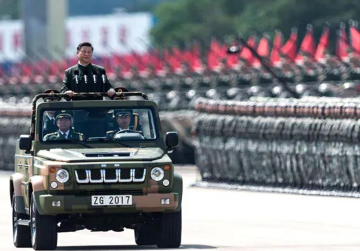There is no clear road-map for either Britain or the European Union, since Britain is the first country to leave the 28-member EU, according to K. Srinivasan, former Foreign Secretary.
Speaking at the lecture discussion on ‘Brexit and the World with Trump’, organised by ORF Kolkata on January 7, 2017, Srinivasan pointed out that the Brexit referendum was entirely a matter of domestic politics. The then Prime Minister David Cameron had wanted to prevent his Conservative Party’s followers defecting to the UK Independence Party which advocated leaving the European Union and restoration of full sovereignty.
Elaborating on the impact of the Brexit vote, Srinivasan highlighted that the process of negotiation that will follow is expected to be a long, arduous and complicated one and may take years to iron out. This in turn might result in fuelling domestic disquiet among those in favour of the exit and those against it.
Britain will try to retain the benefits of the common market while restricting immigration from the EU given that immigration is the key source of contention among a large section of the population which voted in favour of Brexit. In the coming days, the current Prime Minister, Theresa May will be face with difficult choices which will revolve around the adoption of a hard exit or a soft exit. It must be remembered, said Srinivasan, that May had served as a Home Secretary for the major part of her career and it will therefore be likely that she would be continue to think and act like she did in her previous role. In which case, it will be unlikely that Britain will issue more visas as there will be strict laws for entry into the country.
Read | < style="color: #960f0f">Beyond #Brexit: What Ails the European Union?
The economic role that the UK plays with other countries in the organisation is substantive and there is therefore going to be strong business logic for the EU in negotiating with Britain regarding the terms of the exit. Srinivasan pointed out that despite the process of exit initiated by Britain; it is unlikely that other member countries would leave the organisation.
Brexit was not the only surprise election of 2016 and we were also astonished by the US elections. Since many of Trump's statements are inconsistent, it is difficult to determine his impact on foreign policy, observed Srinivasan, saying that the Trump presidency will be an unconventional one to put it mildly and his actions and policies will be subject to close scrutiny and criticism. He drew attention to the fact that a new type of nationalism appears to be emerging across the world through democratic elections citing the USA and the Philippines as cases in point.
Reactions to Mr Trump have ranged from cautious and distant in Europe to optimistic and expectant in Asia. Srinivasan anticipates that the most immediate impact in US relations with other countries would be in the economic domain, although as Trump's views are inherently protectionist no will affect the US domestic situation more than abroad. He concluded saying that it will be in Asia's interest if the USA eschews both isolationism and interventionism, and pursues policies that move towards a more genuinely multi-polar world.
Talking about Brexit, Sunanda K. Datta Ray, eminent journalist, author and the first discussant, agreed with Srinivasan and said that Theresa May is likely to see the relationship with India in terms of immigration. But he observed that Britain & India interacted in so many ways it's hard to say where personal relations end & professional starts, saying that India must prioritise the Free Trade Agreement with Britain. Regarding the Trump government, Datta-Ray remarked that promises made during election campaigns are rarely followed through and we must wait and watch how his presidency actually unfolds. What matters for India are fundamental issues such as visas and it was probable that the Trump government would reduce H1B visas. This however, should not be a huge concern for us since it is high time we stopped relying on importing manpower overseas, he commented. He underscored that India must reorganise its relations with UK, EU and US in the coming years.
The second discussant Anup K. Sinha, former Professor of Economics at the Indian Institute of Management Calcutta, began by highlighting the difference between Brexit and Trump’s win saying that Brexit will be very slow while Mr. Trump is going to start doing things from January 21. He believes that there is incompatibility between market forces in economy and democratic forces in the polity and opined that the old power of nation-states to control destinies is eroding. Global problems probably require global governance. Explaining the Trump phenomenon he said the preservation of cultural identity is a source of anxiety in the current scenario and there is commonality in the arrival of new kind of nationalism as seen in case of Trump, Modi, Putin and other emerging world leaders.
Sinha went on to say that capital flows have grown phenomenally as the western world has realised the need to either live with the idea of free trade or leave it. Unfortunately however, the growth of free trade was not paralleled by compensation to losers. This is an unethically disturbing phenomenon. Trump, according to Sinha, will try to rebalance the economy by reorienting the economy to a domestic need based one and he is going to make government another business.
The discussion was chaired by Ashok Dhar, Director, ORF Kolkata. He said the topic put the liberal world view of open society, open polity and open economy at the centre stage. Trade, security, globalisation and protectionism are at present defining the new world narrative.
This report is prepared by Pratnashree Basu, Junior Fellow, Observer Research Foundation, Kolkata
The views expressed above belong to the author(s). ORF research and analyses now available on Telegram! Click here to access our curated content — blogs, longforms and interviews.




 PREV
PREV


